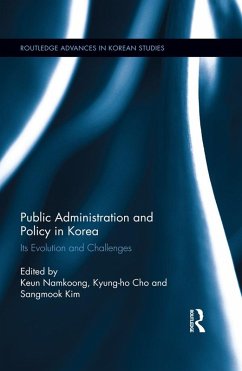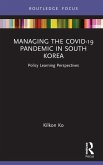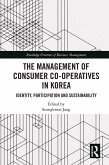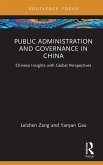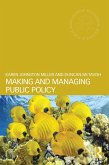Instead of dichotomizing the policy and administration, this book integrates two fields to provide a more holistic view on the Korean public sector. The book also attempts to overcome simplified explanations on the developmental state theory. The book aims to explain who the key actors are during the post-democratization period, how the administrative systems reform, and what kinds of social problems are transformed into public policies. This explanation suggests that the role of government shifts from a dominant actor to an actor within a complex network governance.
This book will be a useful reference to anyone who wishes to learn more about the experience of the Korean development and the role of administration and policy.
Dieser Download kann aus rechtlichen Gründen nur mit Rechnungsadresse in A, B, BG, CY, CZ, D, DK, EW, E, FIN, F, GR, HR, H, IRL, I, LT, L, LR, M, NL, PL, P, R, S, SLO, SK ausgeliefert werden.

